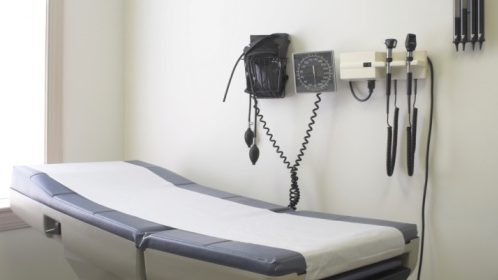More than five years after the COVID-19 pandemic began, there has been little improvement on the frontlines of the country’s health-care system.
A new survey from the Canadian Medical Association (CMA) shows doctors are burnt out and facing depression as the system buckles under increased pressure.
“It’s very concerning, it’s very sad, it’s very disappointing. Physicians need to be well in order to bring their best to work each day,” Dr. Margot Burnell, CMA president, tells 1130 NewsRadio.
“The level of burnout is being caused by increased complexity of patient care, increased administrative burden and increased expectations of patients and families with respect to their care.”
The survey found 74 per cent of physicians have experienced bullying, harassment and discrimination. Though that number is improved from the last time the survey was conducted in 2021. It also shows 46 per cent of physicians report high levels of burnout, which is down from 2021 when it was 53 per cent, but much higher than from 2017 levels when it was just 30 per cent.
One major source of frustration is the amount of administrative tasks and paperwork doctors have to do, and the survey confirms some are leaning on AI to get the work done.
Burnell defends the move.
“AI is a very useful tool. The most common use currently is using an autoscribe. The physician discusses this with the patient and obtains that consent, and this allows the physician to be more engaged with the patient during the visit… and this has been shown for approximately 50 per cent of physicians to save them time.”
She points out that misinformation is also taking its toll on doctors.
“We are seeing that increasingly in our practices, and it takes time in a patient visit to discuss this. One needs to build a trusting patient-physician relationship. The patient wants to be heard, and we want to be heard by the patient.”
“Physicians need to be well in order to bring their best to work each day.”
Burnell suggested some potential solutions.
“Improving the health of physicians is one — to provide increased wellness support in a safe environment. Second, is to increase access to primary care teams and access to team-based care, as that allows the physician to work with other physicians, nurse practitioners and allied health professionals to share the load of patients. So, each time a patient seeks care for a particular problem, that problem may be best reviewed by the physician, but it may be better reviewed by a pharmacist or a social worker — so that will allow physicians to have time off and to look after their own personal wellness.”
Another obvious solution, Burnell ads, is to recruit and retain doctors. But that has proven hard to do at a time when provincial and federal levels of government face economic decline.
One silver lining, she explains, is that more doctors are reaching out for help. With 65 per cent of physicians accessing at least one wellness support reported in this survey — that’s up from 54 per cent in 2021.
But she says the level of burnout found means patient care could be affected.
“If you have someone who is feeling very unwell, then this occasionally may interfere with a patient visit.”
On Tuesday, the CMA will be at a meeting in Calgary attended by the provincial and federal health ministers to make a case for fixing the health-care system.

